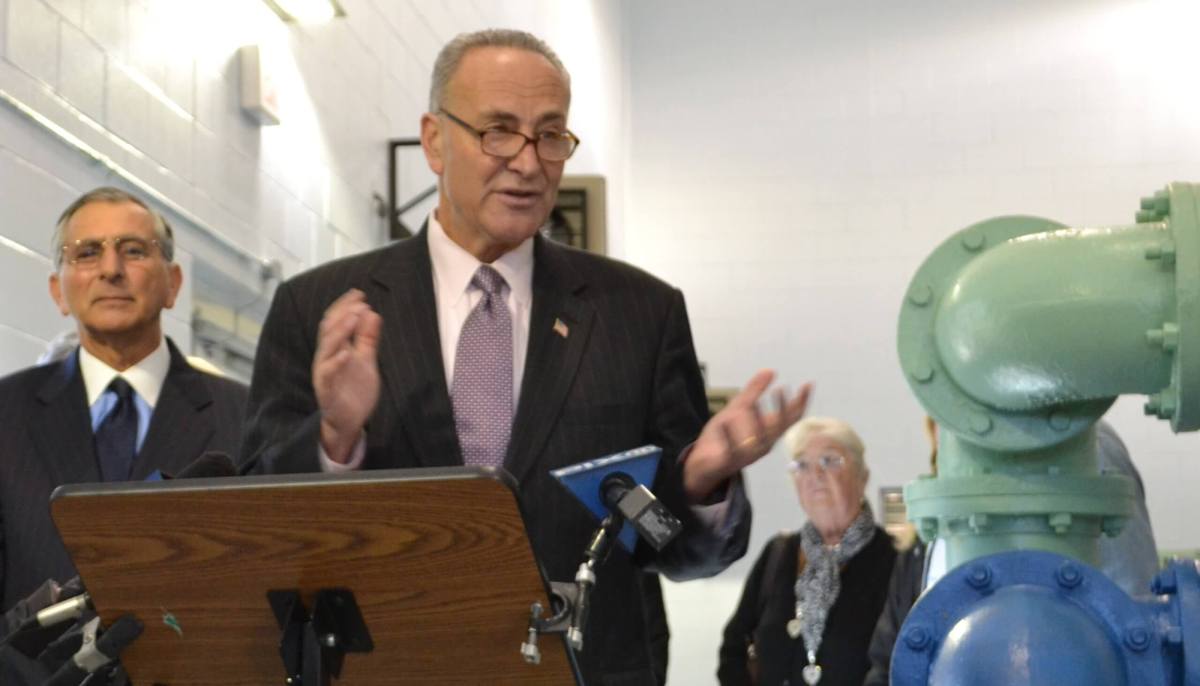
Sen. Charles Schumer called on the Navy Thursday to repay the Bethpage Water District nearly $14 million it borrowed to clean up an underground toxic plume that the Navy was partly responsible for.
Two plumes of chemicals classified as carcinogens originated at a Naval Weapons Industrial Reserve in Bethpage in the 1930s. The chemicals are now threatening more than 20 public drinking wells serving more than 250,000 Nassau County residents.
“Bethpage residents didn’t cause this mess and they shouldn’t have to pay to clean it up,” Schumer said during a news conference at Bethpage Water District’s Plant 6 in Plainedge.
“The Navy and Department of Justice should stop stringing the water district and its customers along and provide the resources needed to pay down the bonds and prevent water bills from sky-rocketing,” he said. “It is bad enough that residents have to deal with the toxic plume—they shouldn’t have to pay extra to do so.”
The plume contains volatile organic compounds such as tetrachloroethylene, along with trichloroethylene, or TCE, classified as a human carcinogen by the U.S. Environmental Protection Agency. The water district utilizes a two-step process consisting of “air stripping” and “granulated activated carbon” technology to reduce the toxic chemicals to non-detectable levels in residents’ drinking water.
The necessary detoxification treatment has cost Bethpage Water District’s 8,800 customers an additional $10 monthly in their water bills. The money has already gone toward making the first $1 million payment toward repaying the bond. Once the Navy pays the water district, the residents will be reimbursed for their extra payments.
Northrop Grumman is partially responsible for the plume, but the defense contractor is not being asked to pay because it already kept its end of a deal to cleanup the grounds of their facility. The Navy was supposed to cleanup where the plume leaked beyond the Grumman grounds.
Schumer has had success in the past with a similar issue in the South Farmingdale Water District, which was also affected by the plume. In 2010, the district received close to $14 million from the Department of Defense, acting on the Navy’s behalf.
“If nothing is done [the plume] will spread from Bethpage and South Farmingdale into Farmingdale, Seaford and Massapequa,” said Schumer. “We hope that by 2013 we’re not even talking about this and that the Navy has paid up.”
A Navy spokesman declined to comment.
The toxic plume and efforts to get it cleaned up were the subjects of a June 28, 2012 Press cover story and multimedia project titled “Ripple Effect.”


























